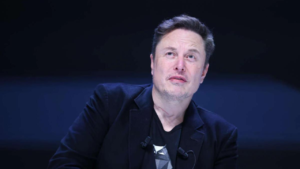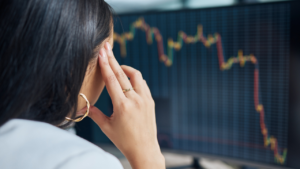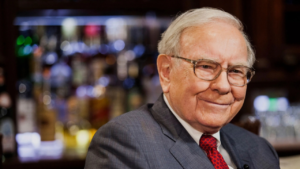Methodology+
Elon Musk: Genius or Gamble? The Unpredictable Billionaire Behind Tesla, Twitter, and SpaceX
In the grand tapestry of American capitalism, few figures loom as large or stir as much debate as Elon Musk. He’s been hailed a visionary, a modern-day Edison, and simultaneously, a reckless gambler, a liability to the companies he leads. As an investor who’s witnessed the ebb and flow of markets for decades, I’ve always held a keen interest in leaders like Musk – those who dare to dream big and reshape industries. But the question remains: Is Musk a net positive or a potential downfall for the companies he helms?
Let’s dissect this conundrum with a Buffettian lens, weighing the evidence on both sides of the scale.
The Case for Musk as a Visionary CEO
First and foremost, one cannot deny Musk’s audacity and ambition. He’s not content with incremental improvements; he aims to revolutionize entire industries. Consider his ventures:
- Tesla: Musk took on the entrenched automotive industry, pushing for electric vehicles long before they were mainstream. Today, Tesla is not just a car company; it’s a symbol of innovation, driving the entire industry towards a sustainable future.
- SpaceX: Musk challenged the notion that space exploration is solely the domain of governments. SpaceX has made reusable rockets a reality, drastically reducing launch costs and opening up possibilities for commercial space travel and colonization.
- Neuralink & The Boring Company: These ventures, though nascent, showcase Musk’s willingness to tackle ambitious, even outlandish, ideas. Neuralink aims to merge the human brain with AI, while The Boring Company seeks to revolutionize transportation with underground tunnels.
This relentless pursuit of the extraordinary has undeniably yielded impressive results. Tesla’s market cap briefly surpassed a trillion dollars, SpaceX secured lucrative contracts with NASA, and Musk himself amassed a fortune that rivals the wealthiest individuals on the planet. Such achievements cannot be dismissed lightly. They attest to Musk’s ability to galvanize talent, secure funding, and execute on a grand scale.
Musk also possesses a rare combination of technical acumen and business savvy. He’s not just a figurehead; he actively engages with engineers, understands the intricacies of his companies’ technologies, and isn’t afraid to get his hands dirty. This hands-on approach fosters a culture of innovation and speed, qualities that are vital in today’s fast-paced world.
Furthermore, Musk’s showmanship and charisma cannot be underestimated. He’s a master of generating buzz, captivating the public with his bold pronouncements and Twitter escapades. This ability to command attention translates into free publicity, loyal customers, and a devoted following. In an era where brand image is paramount, Musk’s personal brand is arguably an invaluable asset to his companies.
The Case for Musk as a Liability
However, Musk’s audaciousness and impulsiveness also raise concerns. His penchant for making bold predictions and setting unrealistic deadlines has often backfired. Remember the “full self-driving” promises that remain unfulfilled or the production delays that plagued Tesla’s early years? Such missteps can erode investor confidence and damage a company’s reputation.
Musk’s Twitter antics have also landed him in hot water. His tweets have moved markets, triggered SEC investigations, and even led to lawsuits. While his unfiltered communication style may resonate with some, it also exposes his companies to unnecessary risks and volatility.
Moreover, Musk’s sprawling empire raises questions about his ability to effectively manage multiple ventures simultaneously. Can one individual truly devote the time and attention required to lead Tesla, SpaceX, Neuralink, and The Boring Company, all while juggling his personal life and Twitter feed? Some critics argue that Musk’s focus is spread too thin, potentially jeopardizing the long-term success of his companies.
Finally, there’s the issue of Musk’s compensation and governance practices. His massive pay packages at Tesla have raised eyebrows, and his tendency to bypass traditional corporate structures has led to concerns about accountability and oversight. While Musk’s vision and drive are undeniable, some worry that his unchecked power could lead to poor decision-making and conflicts of interest.
A Buffettian Verdict
So, where does this leave us? Is Musk a visionary CEO or a liability? In my view, the answer is not black and white. Musk is undoubtedly a force of nature, a disruptor who’s pushed the boundaries of what’s possible. His companies have achieved remarkable feats, and his impact on industries like automotive and space exploration is undeniable.
However, Musk’s impulsiveness, penchant for controversy, and sprawling empire also pose risks. His actions can be unpredictable, and his companies are vulnerable to his personal foibles. As an investor, I’d be cautious about betting the farm on any single Musk venture.
Yet, I also wouldn’t bet against him. Musk has defied skeptics time and again, proving that his ambition and innovation can overcome seemingly insurmountable obstacles. His companies operate in industries with immense growth potential, and his leadership, while flawed, is also undeniably galvanizing.
In a Buffettian sense, investing in a Musk-led company is akin to buying a “wonderful business at a fair price” – with a twist. The business may be wonderful, with disruptive potential and a charismatic leader at the helm. But the price is often far from fair, reflecting the market’s exuberance and Musk’s own hype machine.
Therefore, the prudent investor must tread carefully. Diversification is key, as is a long-term perspective. Musk’s companies may experience volatility and setbacks, but those who can stomach the ride may also reap substantial rewards.
Ultimately, whether Musk is a net positive or a liability depends on one’s investment horizon and risk tolerance. For the patient, long-term investor willing to weather the storms, Musk’s ventures may offer a chance to participate in transformative industries and potentially generate outsized returns. But for those seeking stability and predictability, Musk-led companies may prove too turbulent.
In conclusion, Elon Musk is a complex and enigmatic figure, a CEO who defies easy categorization. He’s a visionary and a risk-taker, a disruptor and a showman. His impact on the business world is undeniable, but so are the risks associated with his leadership style. As investors, we must weigh the evidence carefully, acknowledge both the potential rewards and the inherent dangers, and make informed decisions based on our own investment philosophies and risk appetites.
The Elon Musk saga is far from over. His companies continue to push boundaries, and his actions continue to captivate and confound. Whether he ultimately proves to be a net positive or a liability remains to be seen. But one thing is certain: the world of business will never be the same because of him.
Other posts
© 2024 Methodology+
All rights reserved.




